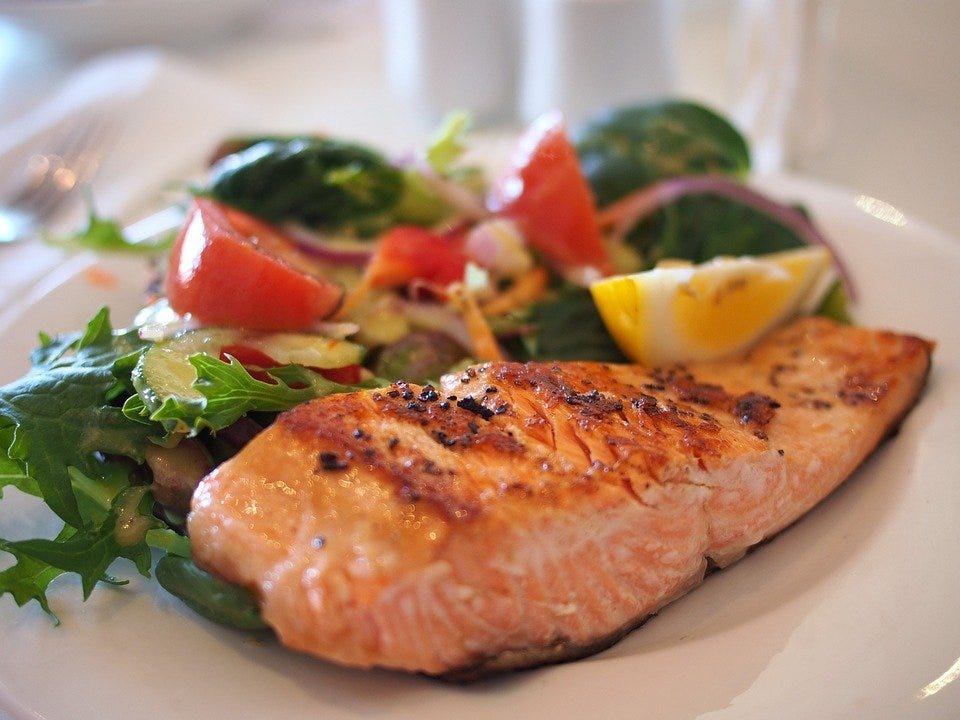Is there any truth to the food combining method so many people practice? In a word, no. This idea of ‘food combining’ came originally from work at the end of the 1800’s by Dr William Hay and has been popularized through various food combining diet books published over the last ten years.
Unfortunately, this crazy and unnecessary food alchemy left many people completely frustrated and returning to their former “bad” habits of eating refined foods, never completely understanding proper nutrition.
Eating in such a way creates an almost impossible dietary regimen that requires more planning, preparing and self-discipline than most could manage. None of it is necessary and your body does not require such a meticulous and disciplined approach to better health.
The idea of food combining has about the same scientific credibility as a lunar eclipse occurring every second Tuesday of the month. Humans have one stomach and a medium-length gut which makes us omnivores and quite capable of handling for example, a steak (protein and fat) and potatoes (carbohydrate) at the same meal.
These authors state that toxins are produced when we eat carbohydrates and proteins together, because the body can only break down one type of food at a time. But in truth, pancreatic enzymes for digestion of carbohydrates and protein are secreted simultaneously regardless of the type of food eaten.
What we’re not told
Advocates of food combining don’t tell you that almost all foods, even when eaten individually, are combinations of fat, protein and carbohydrates to begin with. One cup of broccoli, for example, has approximately 2.6 grams of protein, 4.6 grams of carbohydrate and 0.3 grams of fat. A little common sense tells us that if you couldn’t digest protein and carbohydrate together most of the world’s population would be in serious trouble, because rice, a combination of protein and carbohydrate, is a staple part of diets in many parts of the world. The same goes for bread, pasta, baked beans, breakfast cereals, milk, yogurt and many vegetables.
What would we eat if all these foods ‘fermented’ in our body? If you eat beans, for example, you’re getting carbohydrates (sugars and starches), protein and fibre, among other things. A simple dish like a peanut butter sandwich, or oatmeal with milk contains sugars, starches, protein and fat. Our digestive system handles food combinations very efficiently. As we chew food and saliva acts upon it, it begins the breakdown of starches into sugars. Other enzymes come into play along the line, resulting in almost complete digestion and absorption of nutrients, no matter how they are combined.
“According to dietitian and author of the “American Dietetic Association Complete Food and Nutrition Guide,” Roberta Larson Duyf, eating foods in various combinations and avoiding others does not reduce toxins or improve digestion. Your digestive system is designed to digest a variety of foods and nutrients, regardless of the combination. Positive hygiene habits, avoiding tobacco smoke and eating antioxidant-rich foods, such as colorful fruits and vegetables, are more useful, effect means of reducing or preventing toxins from causing harm.” (Livestrong.com)
Unnecessary burden when eating
Eating is not meant to be complicated. The overwhelming evidence shows that a varied, balanced diet with foods eaten in nutritious combinations utilize vitamins and minerals best. For instance, foods high in vitamin C (such as fruits) boost the body’s absorption of non heme iron from grains. That’s one reason fruit and whole grains make such a good breakfast combination.
There isn’t a single culture that has based their eating habits on food combining. Here in the West, where we have everything in abundance, we have the luxury of fantasizing about what we eat. Those who are starving in other parts of the world eat whatever is available. And imagine a little baby having to look for one food which says ‘protein’ and the other ‘carbohydrate.’ That doesn’t happen because breast milk is a perfect blend of protein, carbohydrate and fat suited to the digestive tract of an infant. It provides all the necessary building blocks for the little body to grow.
The single biggest factor is faulty digestion today is the eating of refined foods. These fibreless, nutrition devoid abominations wreak havoc on our digestion. In my practice, I’ve had tremendous success with this problem by introducing whole foods, in as complete a state to nature as possible. For most people. variety of such foods aids digestion, rather than making it more difficult. However, if certain combinations of foods disagree with you, then eat them separately until your digestion or disorder improves.
The process of digestion is incredible intricate and synchronized and there is no proof that it is limited by various combinations of nutrients eaten together or apart. Bodily health depends on a proper total intake of macronutrient intake through healthy, unprocessed foods.
In my opinion, the theory of protein carbohydrate incompatibility is bunk, but don’t tell that to the many self-proclaimed nutrition gurus which ignore the facts and continued to sell outdated ideas. As they say, don’t let facts ruin your income generating potential.





